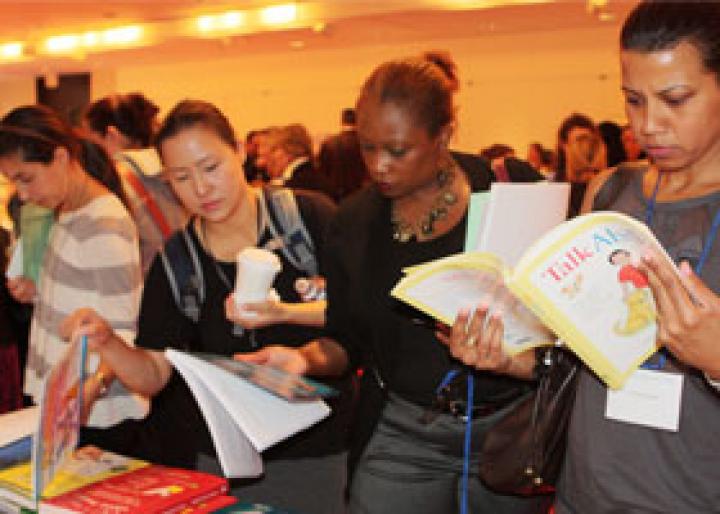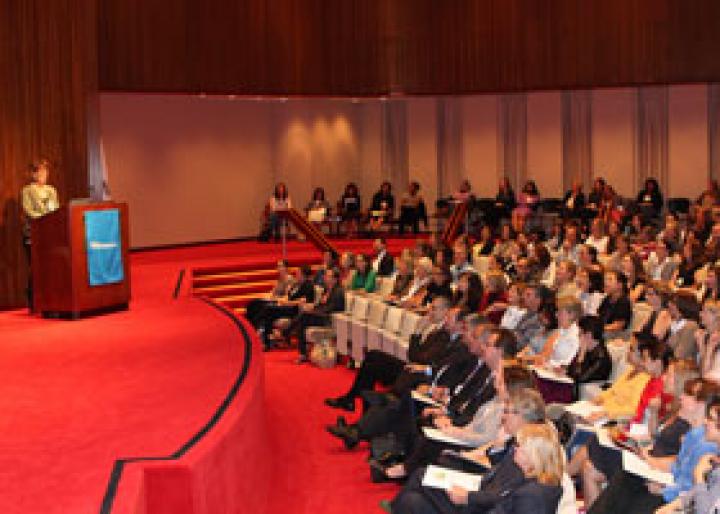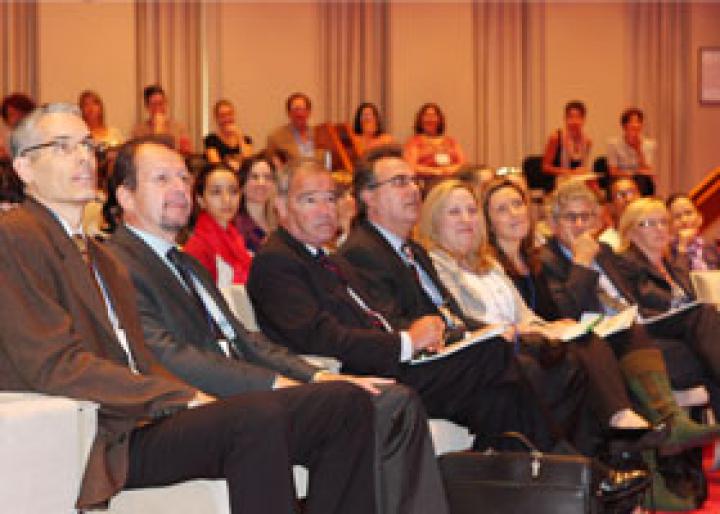Share
“He doesn’t want to ask for help,” Marcia Gotler said of her 10-year-old son, who has an autism spectrum disorder and, despite functioning at a high level, also experiences a great deal of anxiety. “He doesn’t seem to be able to take in all the information and feel safe in a group of people,” Marcia added.
It was for this reason that Marcia decided to attend YAI’s full-day Autism Conference at the McGraw-Hill Auditorium on October 11, 2011. And it was for this reason that speaker Michelle Garcia Winner’s dynamic presentation on Social Thinking resonated with her and the nearly 350 other parents and professionals who attended.
Michelle Garcia Winner, a renowned speech-language pathologist, developed the term “social thinking” to describe how individuals consider the points of view, emotions, thoughts, beliefs and intentions of others.

For most individuals, social thinking develops intuitively from infancy through adulthood. Children and adults with autism spectrum disorders, however, often experience difficulty in learning and applying social information. These difficulties impact social functioning throughout the day and also negatively impact academics. Many children begin to experience significant difficulties due to their lack of social thinking around the third grade when social interaction becomes much more sophisticated and the academic standards move from concrete to more abstract tasks such as requiring students to determine the thoughts, feelings and motives of characters in books.
“This is helping me put together the pieces of the puzzle,” Marcia said of the presentation.

Incorporating video and personal anecdotes, Michelle engaged the audience and helped them realize that social thinking was a tool they could use to help their child and enhance his or her social skills. “Social skills are cultural,” Michelle said. “Social thinking is humanity. It’s ‘I think about you’ and ‘you think about me.’”
Learning social skills is complicated, she explained. And poor social skills can offend people on a regular basis – by being rude or even being overly friendly.
“This is just a topic that is so critical for my daughter,” noted Vera Schneider, who also attended the Conference. “Academically, she’s strong right now, but as she goes further in school, I worry about her socially.”
“The thing that No Child Left Behind forgot is that we’re preparing children for the adult world, not for (better) test scores,” Michelle added.

Susana Monies, who has a 4-year-old son with autism, has been learning about social thinking since May by visiting Michelle’s website, “Today, I’m really making sense of it. This is going to be so important for him so that one day he can get a job and have friends.” The next time Susana and her son are out in the community and see a family member or friend, she’s going to encourage him to say hello and ask the person how they are doing.
But the Conference wasn’t designed to help just children. Teens, adolescents and adults also benefited.
“We have an influx of students with autism spectrum disorders,” said attendee Stacey DeFelice, Director of Students with Disabilities at Five Towns College on Long Island. “Michelle’s presentation is helping me learn how to talk to them and assess their needs. This is the best conference I’ve been to!”
Stacey’s colleague, Carolyn Newman, a Mental Health Counselor at the college, also attended. “This is giving me the tools to help students and get them going in the right direction,” she said.
YAI is grateful to the New York City Council’s Autism Initiative, which helped make this Conference possible.
